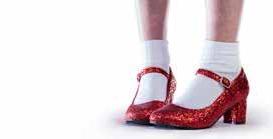
3 minute read
Rethinking elder care: there's no place like home
With the uncertainty of living with COVID-19, the considerations for transitioning from hospital or rehab to home have changed considerably, particularly for seniors.
Similarly, with safety in mind, many seniors are voluntarily transitioning from assisted or skilled nursing facilities to home under the care of a single caregiver to minimize exposure to the coronavirus.
Advertisement
Before the pandemic, it was common practice to send discharged hospital patients to rehab centers where they could comfortably convalesce from an illness, surgery or injury. Today, patients—particularly seniors and their families—are minimizing the risk of COVID-19 exposure by opting to bypass rehab and go directly home under the supervision of a caregiver. A bonus is the senior now has one-on-one care in his or her own home instead of sharing a rehab caregiver with a handful of patients. And as Dorothy has been telling us for years, there is no place like home.
Our SYNERGY HomeCare caregivers are trained in CDC-approved safety measures to prevent the spread of COVID-19. These measures include frequent handwashing, temperature checks, home sanitization of common areas and wearing personal protective equipment such as masks and gloves.
Many seniors are choosing home care over rehab centers. Nursing homes from coast to coast are also experiencing a steady exodus of residents—some who are asked to leave after testing positive for COVID-19 and some who exit voluntarily to avoid further exposure, as the number of COVID-19 cases continues to climb faster in nursing homes and skilled nursing facilities than any other location.
The decision for seniors to recover at home, interacting with one safety-compliant caregiver per shift instead of being exposed to rehab or skilled nursing facility staff and their patients, is an easy one. The sheer number of people potentially exposed to the coronavirus is a strong argument to consider to make the change to home care.
Seniors aren’t the only ones using home care to protect themselves and their families from COVID-19. As the country’s leaders continue to roll back sheltering in place and ease business restrictions, much of the workforce is transitioning from their work-from-home routines and returning to their offices. For those with families, including children and aging parents living with them, returning to work means finding safe care for them.
Daycare, as well as summer camps and programs, may be open, but are they safe? Senior centers and adult daycares harbor the same safety issues as nursing homes and care facilities: the gathering of those most vulnerable to COVID-19 are at a heightened risk of exposure. While the government has defined safety protocols, the virus remains active and that means increased risk where large numbers of people gather.
Many parents face the heart-wrenching decision of going back to work to provide for their families or keeping their kids and aging parents safe by staying home with them. Most Americans do not have the means to choose the luxury of staying home without an income. If they did decide to go back to work, could they handle it if one of their kids or parents contracted the coronavirus?
The decision of whether to go back to work or care for your family doesn’t have to be complicated; in fact, it’s an easy one to make. Choose the same solution that thousands of families have used as they transitioned from the hospital, nursing home or skilled nursing facility to home.
Keep your loved ones safe at home with non-medical home care. SYNERGY HomeCare caregivers care for those living with chronic illness, physical and cognitive disabilities as well as aging parents. It’s a safe choice that minimizes the risk of contracting the coronavirus and offers peace of mind for working families. Your family will be well cared for by a compassionate caregiver whose number one priority is your loved one’s well-being.
Dorothy was right—problem solved!







